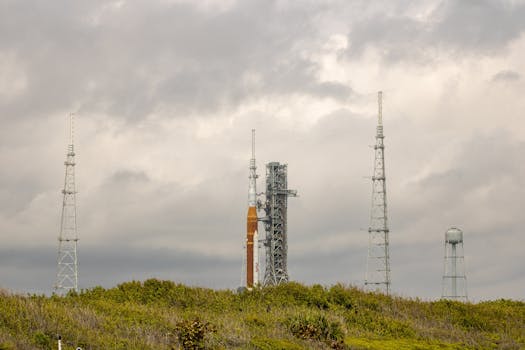Satellite Launch Missions and Their Impact on Space Exploration – Revolutionizing the Cosmos

Satellite Launch Missions and Their Impact on Space Exploration – Revolutionizing the Cosmos
Satellite launch missions have been a crucial part of space exploration, enabling us to study the Earth, communicate with each other, and explore the vastness of space. With the advancement of technology, satellite launch missions have become more efficient, cost-effective, and precise, playing a significant role in shaping our understanding of the universe. In this article, we will delve into the world of satellite launch missions and their impact on space exploration, with a focus on Satellite launch and its applications.
Introduction to Satellite Launch Missions
A satellite launch mission is a complex process that involves launching a satellite into orbit around the Earth or beyond. The satellite is carried into space by a launch vehicle, which is a rocket designed specifically for this purpose. The launch vehicle must be powerful enough to escape the Earth’s gravitational pull and reach the desired orbit. Once in orbit, the satellite can begin its intended mission, whether it be to study the Earth, communicate with other spacecraft, or explore the vastness of space.
There are several types of satellite launch missions, including Earth observation, communication, navigation, and scientific research. Earth observation satellites are used to study the Earth’s surface, atmosphere, and oceans, providing valuable data for weather forecasting, climate monitoring, and natural resource management. Communication satellites, on the other hand, are used to transmit data and signals between different locations on Earth, enabling global communication and connectivity.
The Impact of Satellite Launch Missions on Space Exploration
Satellite launch missions have had a profound impact on space exploration, enabling us to explore the vastness of space and study the Earth in unprecedented detail. With the help of satellites, we have been able to map the Earth’s surface, study the atmosphere and oceans, and monitor the climate. Satellites have also enabled us to communicate with other spacecraft and explore the solar system, with missions such as the Mars Curiosity Rover and the Voyager 1 and 2 spacecraft.
Satellite launch missions have also played a significant role in the development of new technologies, such as satellite navigation and remote sensing. Satellite navigation systems, such as GPS, have revolutionized the way we navigate and have enabled us to determine our location and velocity with precision. Remote sensing technologies, on the other hand, have enabled us to study the Earth’s surface and atmosphere in unprecedented detail, providing valuable data for environmental monitoring and natural resource management.
Challenges and Opportunities in Satellite Launch Missions
Despite the many successes of satellite launch missions, there are still several challenges and opportunities that need to be addressed. One of the major challenges is the cost of launching satellites into space, which can be prohibitively expensive for many countries and organizations. Another challenge is the risk of space debris, which can pose a significant threat to the safety of satellites and other spacecraft in orbit.
However, there are also many opportunities in satellite launch missions, such as the development of new launch technologies and the growth of the commercial space industry. Private companies such as SpaceX and Blue Origin are working to develop reusable launch vehicles, which could significantly reduce the cost of accessing space. The growth of the commercial space industry is also creating new opportunities for satellite launch missions, such as the development of satellite constellations and the provision of satellite-based services.
Conclusion
In conclusion, satellite launch missions have been a crucial part of space exploration, enabling us to study the Earth, communicate with each other, and explore the vastness of space. With the advancement of technology, satellite launch missions have become more efficient, cost-effective, and precise, playing a significant role in shaping our understanding of the universe. As we look to the future, it is clear that satellite launch missions will continue to play a vital role in space exploration, with new opportunities and challenges emerging all the time.




